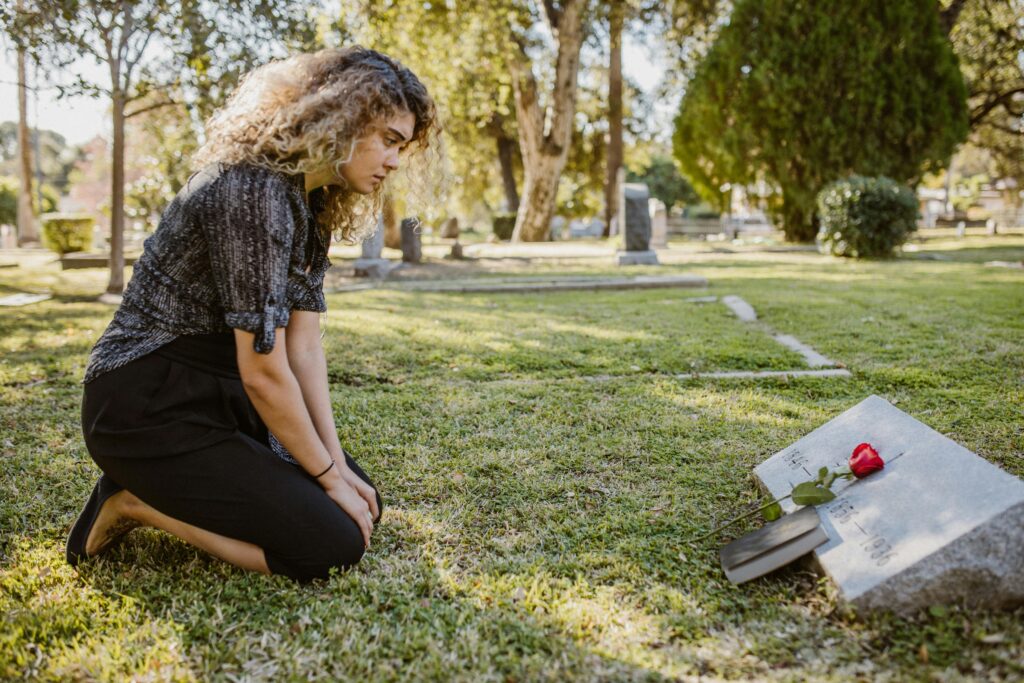Grief & Trauma: Things to Know

What Are Grief & Trauma?
Grief and trauma are emotional responses to loss and distressing life events. While grief typically follows the death of a loved one, it can also occur after the loss of a relationship, job, home, or sense of identity. Trauma results from experiencing or witnessing a deeply disturbing or life-threatening event.
Both can affect mental, emotional, and physical well-being—and sometimes overlap.
Types of Grief and Trauma
There are different forms of grief and trauma, each with unique challenges:
Acute Grief: Intense sadness after a recent loss.
Complicated Grief: Persistent, long-term grief that interferes with daily life.
Traumatic Grief: A blend of trauma and loss, often sudden or violent.
PTSD (Post-Traumatic Stress Disorder): A psychiatric condition following a traumatic event.
Cumulative Trauma: Repeated exposure to distress, such as ongoing abuse or loss.
What Causes Grief and Trauma?
Common causes include:
Death of a loved one
Divorce or relationship breakup
Miscarriage or infertility
Witnessing or surviving violence, accidents, or abuse
Natural disasters or war
Medical trauma or chronic illness
Everyone’s threshold for trauma is different—what overwhelms one person might not affect another the same way.
What Are the Symptoms?
Grief and trauma can affect people physically, emotionally, and behaviorally.
Common symptoms include:
Deep sadness, crying, or emotional numbness
Guilt, anger, or helplessness
Flashbacks, nightmares, or intrusive thoughts
Fatigue, sleep problems, or physical pain
Avoidance of reminders
Difficulty concentrating or connecting with others
Symptoms may come in waves, fade and return unexpectedly, or persist over time if left unaddressed.
How Are Grief and Trauma Diagnosed?
Diagnosis involves:
A clinical interview and emotional history
Screening tools like the PTSD Checklist (PCL) or Prolonged Grief Disorder scale
Assessment of how symptoms affect daily functioning
Grief is a natural process, but if symptoms last longer than expected or worsen over time, a professional may evaluate for trauma-related conditions like PTSD or complicated grief.
How Are They Treated?
Treatment focuses on helping individuals process pain, regain a sense of safety, and rebuild their lives.
Common therapies include:
Grief Counseling: Supports emotional expression and adjustment after loss.
Trauma-Focused Cognitive Behavioral Therapy (TF-CBT): Helps reframe distressing thoughts and build coping skills.
EMDR (Eye Movement Desensitization and Reprocessing): Effective for processing trauma.
Somatic Therapies: Help release trauma stored in the body.
Medication: May help manage anxiety, depression, or sleep issues.
Can You Heal From Grief and Trauma?
Healing is possible. While you may never “get over” a loss or traumatic experience, you can learn to live with it in a healthy, meaningful way. Support, time, and the right therapy can help you move from survival to growth.
When Should You Seek Help?
Consider seeking professional support if:
Your grief feels unbearable or doesn’t improve over time
You experience panic attacks, flashbacks, or emotional numbness
You’re withdrawing from others or struggling to function
You feel stuck in sadness, guilt, or anger
You turn to substances or risky behavior to cope
Who Is at Risk?
Some individuals are more vulnerable to prolonged or traumatic grief responses:
Those with a history of trauma or mental illness
People experiencing sudden or violent loss
Caregivers or medical professionals facing vicarious trauma
Children and teens with limited coping skills
Individuals without strong social support
Living With Loss and Trauma
You are not alone. Healing is a journey, and grief doesn’t have a deadline. Whether you’re grieving a loved one or recovering from trauma, you deserve compassion and support.
Key elements of healing include:
Safe, supportive therapy
Connection with others
Self-compassion and patience
Tools for grounding and emotional regulation
Frequently Asked Questions
Grief is a natural emotional response to loss. Trauma is the psychological impact of a frightening or life-threatening event. They often overlap, especially after sudden or violent loss.
Yes. Sudden or violent loss can lead to traumatic grief, where a person experiences both mourning and trauma symptoms like flashbacks or hypervigilance.
There’s no timeline. Acute grief may ease within months, but some people experience prolonged grief that lasts for years, especially without support.
Persistent yearning, inability to accept the loss, avoidance of reminders, and difficulty moving on with life may signal complicated grief.
PTSD is a mental health condition triggered by experiencing or witnessing trauma. It involves symptoms like flashbacks, avoidance, and emotional numbness.
Therapists may use talk therapy, trauma-focused CBT, EMDR, or somatic methods to help clients process painful experiences and develop coping tools.
Yes. Emotional numbness or disconnection is a common trauma response and can also occur in deep grief.
Absolutely. Children may not express emotions the same way as adults but can be deeply affected. Specialized therapy can support their healing.
Not always. Some therapies, like EMDR or somatic therapy, allow for healing without retelling the entire story.
Yes. Trauma can cause physical symptoms like fatigue, muscle tension, headaches, and digestive issues due to prolonged stress responses.
It’s the feeling of guilt that arises when someone survives an event in which others died or were harmed. It’s common in trauma survivors.
Yes. Grief can lead to depression, anxiety, panic attacks, or suicidal thoughts, especially if prolonged or unsupported.
Listen without judgment, offer consistency, avoid giving advice too quickly, and encourage them to seek professional help if needed.
